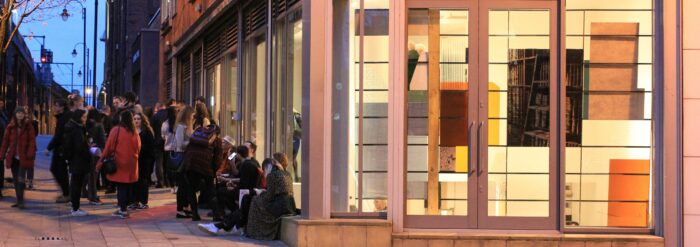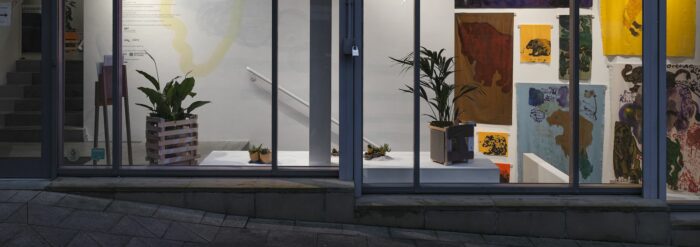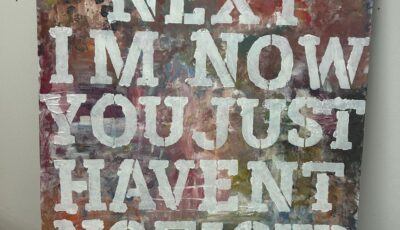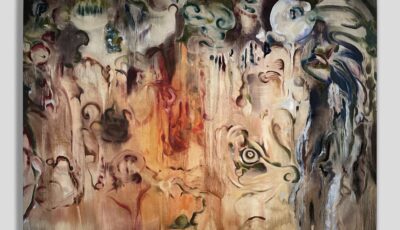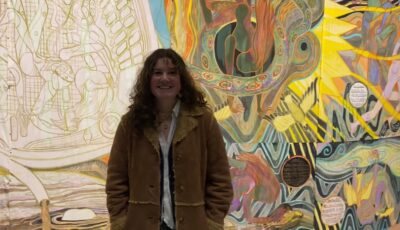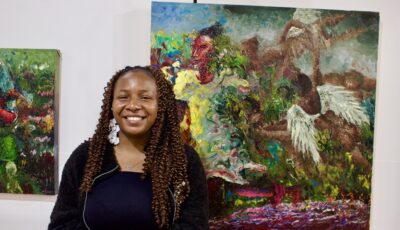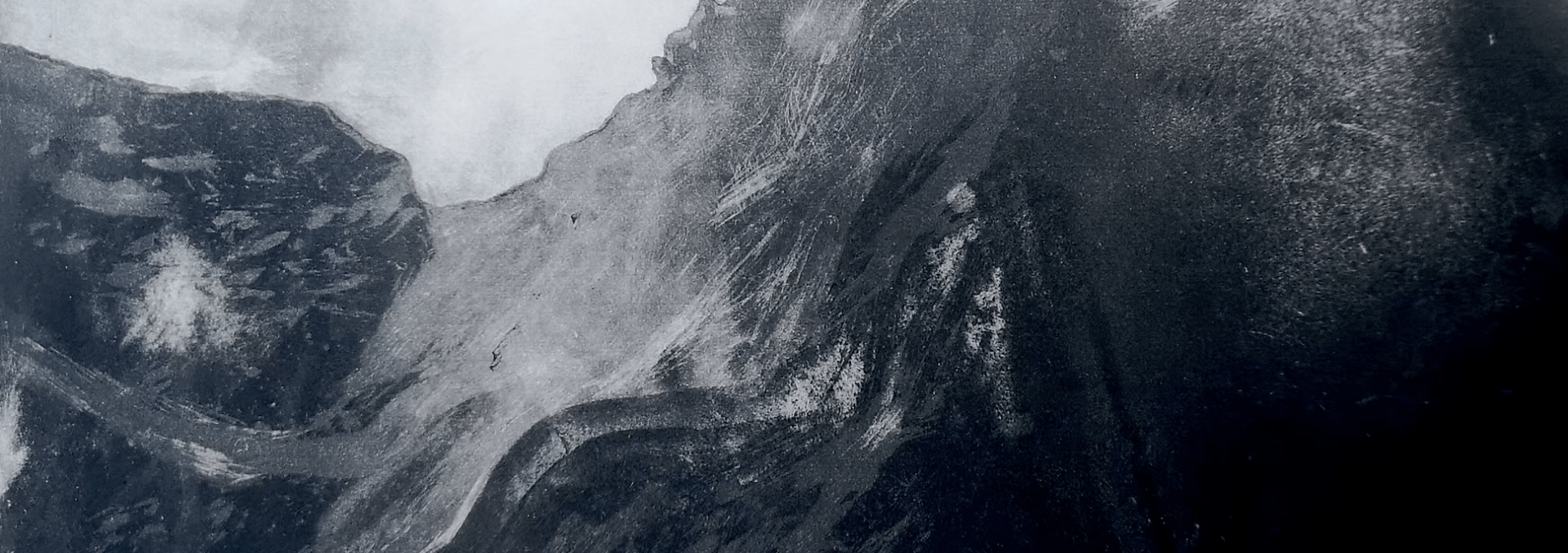
Artists and Sustainability Spotlight: Katy McGahan
Posted on 28 October 2025
This month we’ve invited Katy McGahan to contribute to our ongoing series Artists and Sustainability Spotlight, where we ask artists to share short responses about their work and how it might relate to climate change.
Katy McGahan is a multi-disciplinary artist who works primarily with film and sound. Her work has been exhibited in cinemas and gallery spaces across the UK and internationally. Her grassroots documentary, The Happy Man Tree (2023), which was made as part of the MFA in Creative Documentary Practice at University College London (UCL), was selected to tour as part of the Green Screen Network, an initiative on the part of a consortium of UK cinemas to show more films with environmental themes. She is one of the founding members of the Notice This Tree group which has been organising art/activist ‘interventions’ in towns and cities across the UK since 2023. The group facilitates connections between people and the rest of the natural world through participatory art, performance art, film screenings, sound works, and conversations.
Katy has worked as a curator, researcher and educator for organisations such as the British Film Institute and Open University. She also runs short courses in radical filmmaking and sound works – Hyenas in Petticoats
Her latest moving image work, Tipping Points are Irreversible (2025) will premiere at Braziers International Film Festival (BIFF), Aug 29-31, 2025
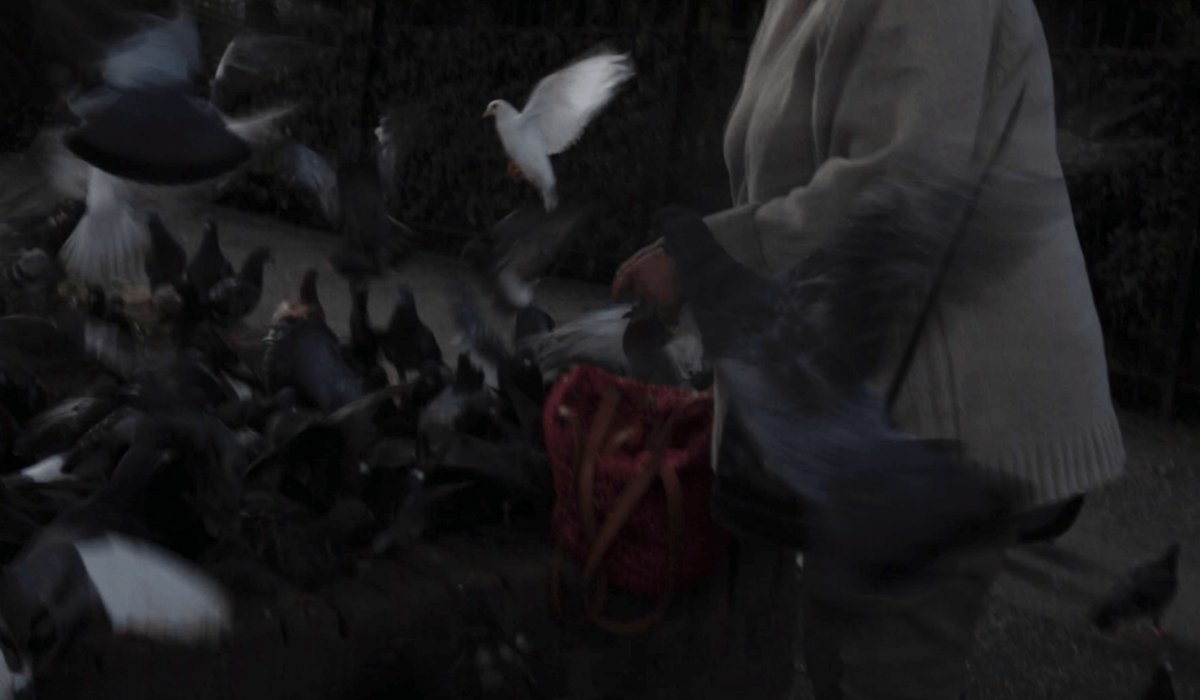
In what ways do you feel your work might relate to issues of climate change and sustainability, in the content of the work, its narrative, conceptually or theoretically. How might it speak to or challenge public discourse?
Like most people I am deeply troubled by the detrimental impact that climate change is having on our precious planet. Being able to channel these concerns through my practice, and witnessing other artists doing the same, affords me a sense optimism. I am drawn to exploring the tension between the deep sense of connection we humans can have with the rest of the living world and the part we are collectively playing in simultaneously harming it.
My practice is socially engaged and there’s often a participatory element to my work. Listening and openness is at the heart of what I do. I enjoy collaborating with people I meet along the way – other walkers, artists, climate and social justice campaigners, scientists, ecologists – and plants of course – many of which have starred in my films.
I am a co-founder of the Notice This Tree group and since 2023 we have been touring towns and cities across the UK organising ‘interventions’. Our remit is connection. In the lead up to these events we connect with local people and invite them to walk from a local tree of their choice to the local venue where we can share stories; contribute to our ever-evolving tapestry and/or ongoing Notice This Tree audio work; watch films together; reflect; and listen to one other. The intention is to create spaces that foster community connection, mutual care, and inspire creativity.
Walking is integral to my practice – it’s something I’ve enjoyed doing since I was a kid and I think it has kept me – as a city dweller for most of my adult life – closer to nature. I like to keep my practice fluid. As a filmmaker and sound artist I’m more interested in discovering than capturing. Walking yields many interesting and inspiring encounters with people and other life form. My work is all about the journey; the process; the encounters and small epiphanies I experience along the way. When I, unexpectedly, found myself at a loss following a job redundancy, I carried on doing my usual route to work, but instead of walking purposefully, I took advantage of the opportunity to travel at a slower pace and interact in a different way to people and places that I encountered along the route. I was able to enjoy the small pockets of nature that I’d previously missed in my rush to work. This led to the making of my film and audio project, Same Route Different Destination, which encapsulates the fluid approach that I try to apply to my practice.
My current work-in-progress is an ambitious installation incorporating moving image, audio works, and drawings, to be experienced in different spaces – indoor gallery space, outside in the landscape that inspired the work and interactive online offering. It is rooted in social history, memory, environmental degradation, loss and recovery.
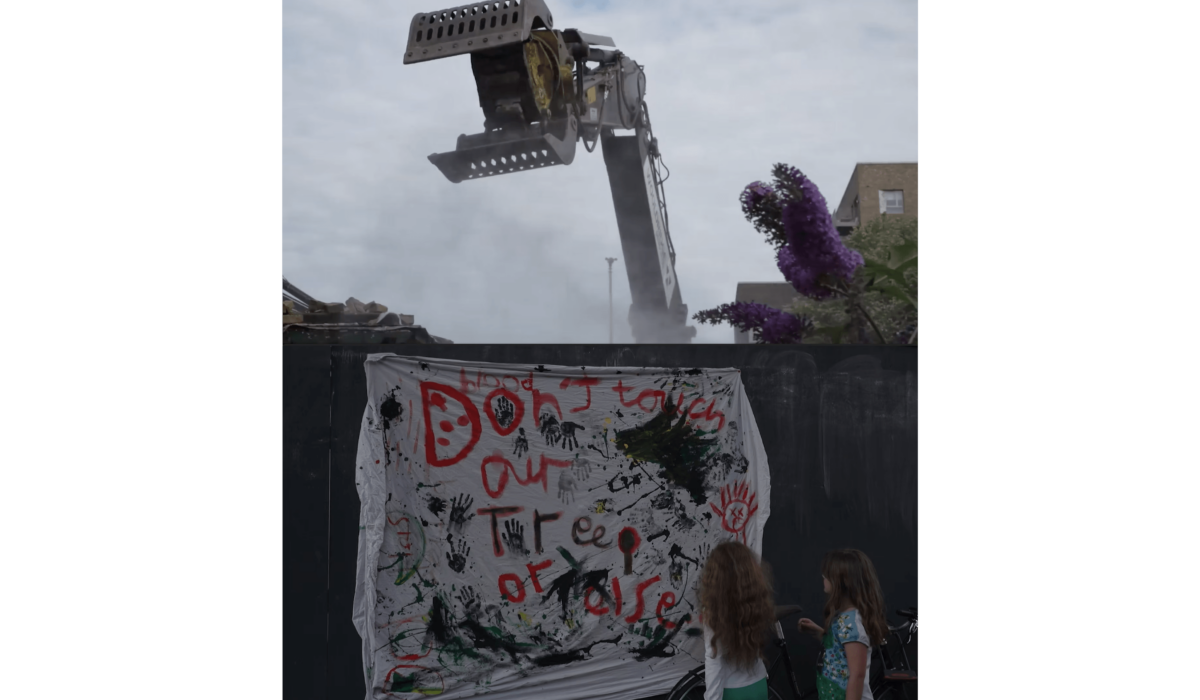
With regards to the materials, processes and techniques you use to produce your work, are there any practical decisions you make with regard to climate change and sustainability?
I’m conscious that the tools I use – film cameras (digital and analogue), sound recording equipment, computers – aren’t environmentally friendly, but I try take some steps to lighten my impact where I can. Most of the equipment I use was bought second-hand and it has served me very well and I’ve been able to have equipment repaired as opposed to replacing it.
I hate that obsolescence is built into technical equipment – that definitely needs to change. In terms of technology, I’m not interested in having the latest anything. If it does the job I keep it for ever and have no interest in upgrading my film equipment to 2k 4k 6k or whatever. The kinds of films and audio works I’m interested in making don’t need to be ultra-high resolution. I cherish the flaws that are integral to old formats such as video tape and super 8 film etc., and often buy out-of-date film stock for this reason. I like working with found footage – rescuing and re-purposing it.
I enjoy experimenting with processing film using non-chemical plant-based developing agents and I love the element of surprise associated with such processes. I’ve also started experimenting with making dyes from plants that can be used as tinting agents.
I have declined invitations to attend international screenings of my films as I try to keep my air travel to a minimum.
It is impossible to achieve perfection given the growth-obsessed, capitalist system that we all operate within, but I believe that we can all quite easily make some sacrifices.
I have recently been dipping my toes into the wonderful world of permaculture and I’m very excited about incorporating permaculture principles and design – which take inspiration from flourishing natural ecosystems – into my practice.
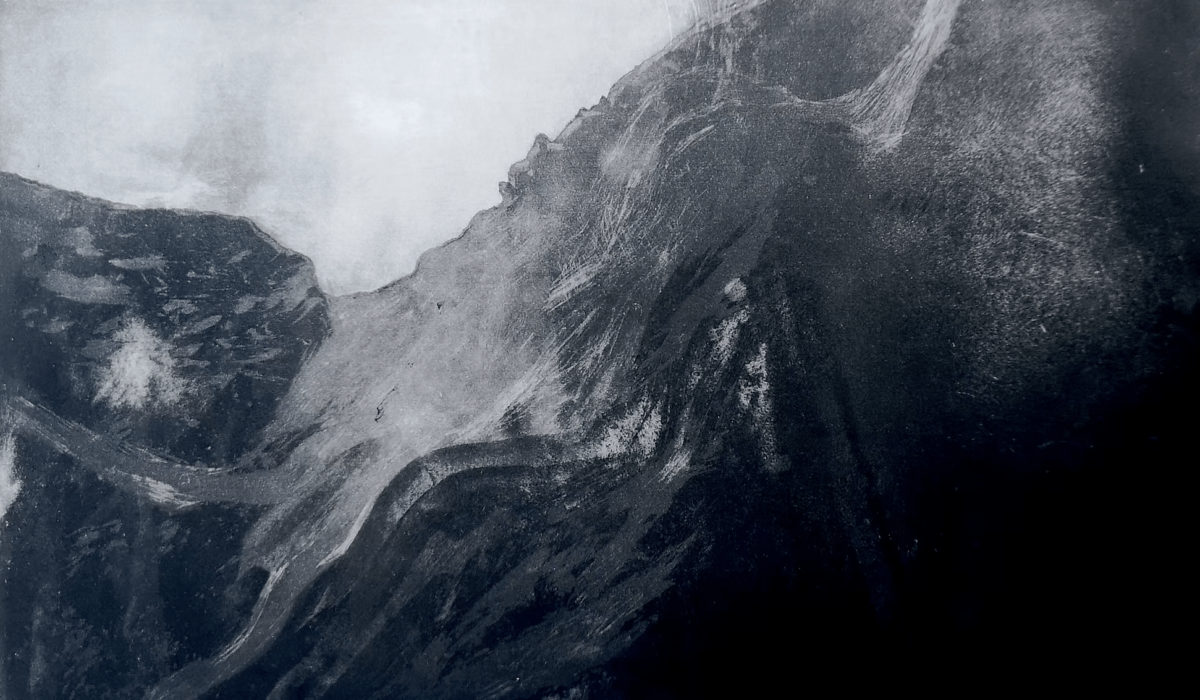
In general, how do you feel galleries, art spaces, artworks and artists might be able to contribute? What if any role do you feel they can play in a progressive conversation?
Galleries, art spaces, artworks and artists can play a huge role in the movement towards combatting climate change and pursuing environmental/social justice. People look to the artworld for innovation and inspiration and there’s a responsibility that comes with that. Over the past 15 years or so there’s been an ever-increasing number of exhibitions in museums and galleries that speak to climate and social justice themes, reflecting the interest of artists, curators and other people working in the arts sector, to address these urgent priorities. Opening up to new, more diverse voices has made the art world a much more interesting and inclusive place. I believe it’s really important for the art world to support and showcase the work of artists who live in or have connections with places where climate change is being felt the hardest.
It’s imperative for galleries and museums to be seen at the forefront of environmental innovation, taking steps such as divesting from fossil fuels; opting for greener architectural design; applying zero-waste practices; subscribing to international climate target coalition initiatives etc. When big institutions take significant steps it inspires hope and encourages others to take similar positive actions.
Are there any tips or advice, anything you have learnt you might want to share with other artists or our audiences?
If you get stuck go for a walk. Maintain an open attitude, as opposed to setting out with a defined concept/approach. This has really helped me move forward with my practice. Support activists. It’s becoming increasingly difficult to exercise the right to protest peacefully and so people who put themselves on the line for others need our support more than ever.
Links
Katy McGahan's website
katymcgahan.comKaty McGahan's instagram
@katy.mcgahanNotice this Tree's website
noticethistree.orgImages
Banner:
- Katy McGahan, Etching – Mountain. Image courtesy of the artist.
From left to right, top to bottom:
- Katy McGahan, Pigeon woman. Image courtesy of the artist.
- Katy McGahan, Don’t Touch Our Tree. Image courtesy of the artist.
- Katy McGahan, Etching – Mountain. Image courtesy of the artist.
